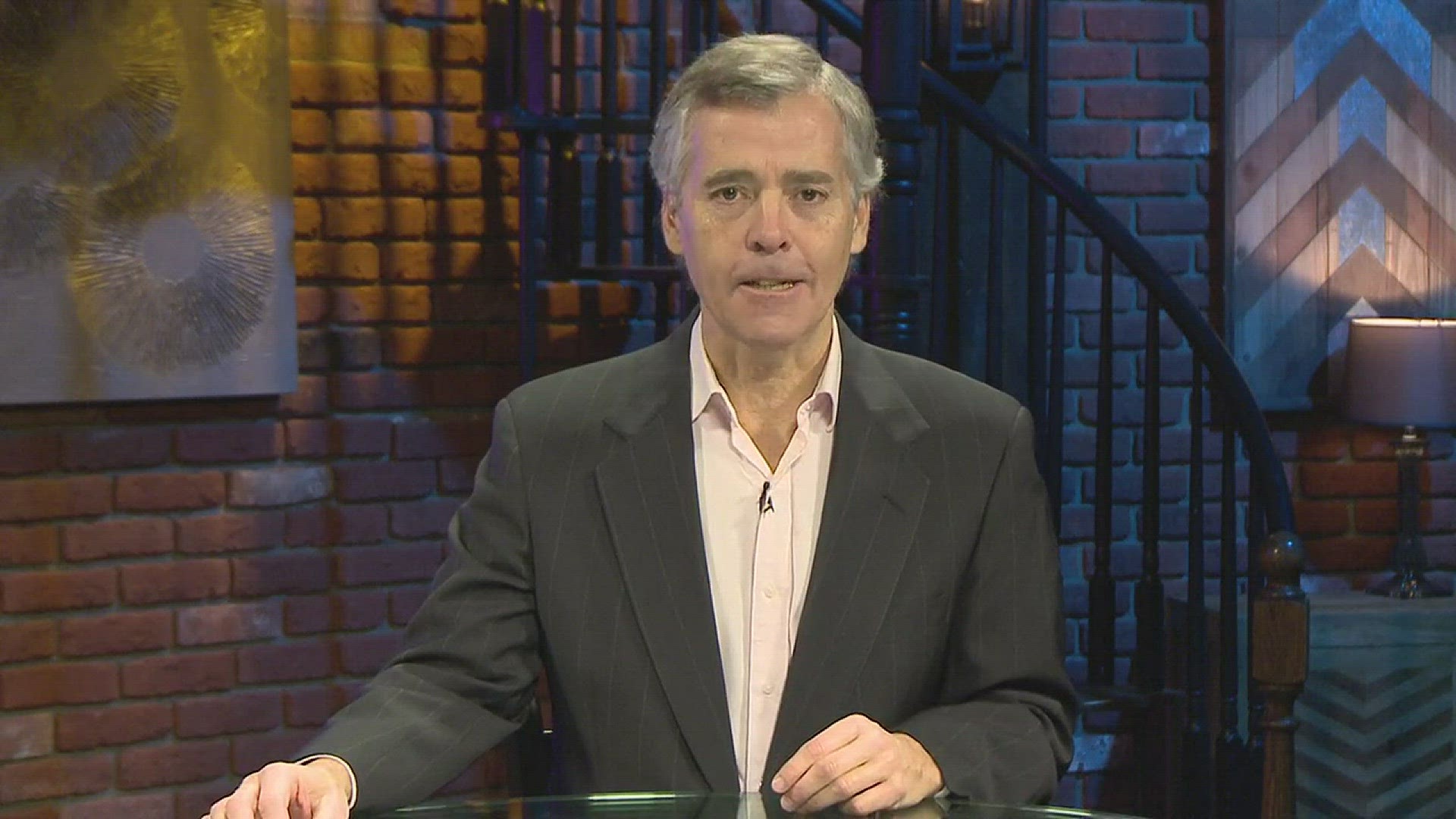WASHINGTON (AP) — President Donald Trump has signed an executive order disbanding his controversial voter fraud commission amid infighting, legal threats and information denials.
The White House blamed the decision, announced Wednesday evening, on a refusal by more than a dozen states to comply with the commission request for reams of personal voter data, including voters' names, voting histories and party affiliations.
"Rather than engage in endless legal battles at taxpayer expense, today President Donald J. Trump signed an executive order to dissolve the Commission, and he has asked the Department of Homeland Security to review its initial findings and determine next courses of action," White House spokeswoman Sarah Huckabee Sanders said in a statement.
Critics saw the commission as part of a conservative campaign to make it harder for poor people and minority voters to access the ballot box, and to justify unfounded claims made by Trump that voter fraud cost him the popular vote in 2016.
Maine Secretary of State Matt Dunlap sued the Presidential Advisory Commission on Election Integrity, of which he was a member, and a federal judge later ruled the secretary could not be excluded from participating in the work of the commission.
The opinion said Dunlap should have been granted access to documents such as a request for voter data sent to U.S. states and meeting agendas. A statement from Dunlap said the ruling was "a clear vindication of what [he had] fought for."
Dunlap released a statement Wednesday night following the president's order to disband the commission, saying while it came without warning, it wasn't a surprise.
"I am disappointed that we will not be able to answer the questions posed by the President about millions of illegal votes cast in the 2016 election," Dunlap said. "While I never believed we would find anything to substantiate those claims, I was excited by the opportunity to tell the world just how good Maine’s town and city clerks are, and how devoted election volunteers are, and how committed our citizens are to the principles of democratic self-governance."
[You can find the full statement from Sec. Dunlap after the end of this story]
Trump has repeatedly alleged, without evidence, that 3 million to 5 million people voted illegally in the 2016 election, delivering the popular vote to his Democratic rival, Hillary Clinton.
Past studies have found voter fraud to be exceptionally rare.
Critics also viewed the commission as an attempt to distract from the ongoing investigations into Russian election meddling and potential collusion between Moscow and Trump campaign aides. The intelligence community concluded that the Russian government mounted a campaign to help Trump win.
At least a dozen states, plus Washington, D.C., had rebuffed the commission's request for voter data, citing privacy concerns and a fear that complying would legitimize the idea that voter fraud is widespread.
While there have been isolated cases of people voting illegally, and many voter rolls often contain outdated data, there is no evidence voter fraud is a widespread problem in the United States or has impacted election results.
A study by a Loyola Law School professor found that out of 1 billion votes cast in all American elections between 2000 and 2014, there were only 31 known cases of impersonation fraud.
Trump, during the commission's first meeting, questioned the motives of states that refused to comply with the commission's requests, suggesting they had something to hide.
Voter advocacy groups and Democrats applauded the development.
"President Trump created his sham voting commission to substantiate a lie he told about voter fraud in the 2016 election. When he couldn't come up with any fake evidence, and under relentless pressure, he had no choice but to disband his un-American commission," said Let America Vote President Jason Kander in a statement.
Kander added, "Good riddance."
Full statement from Sec. Dunlap:
“While the order from the President dissolving the commission came without warning, it’s not a surprise,” said Secretary Dunlap. “The Presidential Advisory Commission on Election Integrity has not functioned according to the Federal Advisory Committee Act since its inception, and the ruling in my favor pursuant to the complaint I filed in the U.S. District Court has borne those shortcomings out.
“I am disappointed that we will not be able to answer the questions posed by the President about millions of illegal votes cast in the 2016 election. While I never believed we would find anything to substantiate those claims, I was excited by the opportunity to tell the world just how good Maine’s town and city clerks are, and how devoted election volunteers are, and how committed our citizens are to the principles of democratic self-governance.
“The lack of transparency brought nothing but suspicion onto the work of the commission, which bankrupted it of any chance at public legitimacy. While this chapter is now closed, I am committed to remaining vigilant on the front of election integrity and the transparent, free, and fair conduct of elections.
“I am greatly indebted to the voters of Maine for setting the standard in the conduct of elections, to my devoted coworkers in the Department of the Secretary of State, to the skilled attorneys at American Oversight and Patterson Belknap who represented our interests in Federal court, and to the Maine Legislature for entrusting me with this sacred charge. We now move on to the next chapter.”

